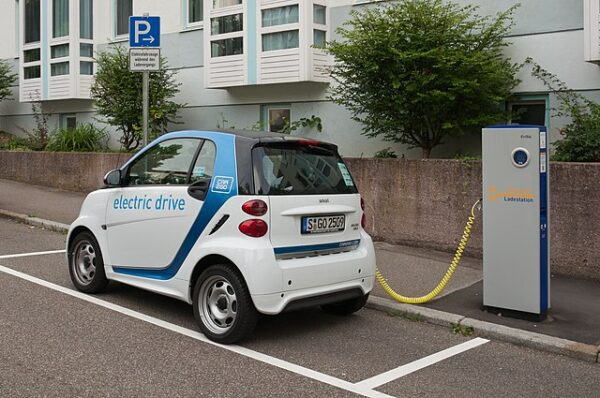Last fall, New Conservative Post documented how Biden’s version of the “New Green Deal” had begun “to go up in smoke” and that the president’s policies had wrecked the automotive industry, which employs hundreds of thousands of Americans.
Business Insider reported that “several C-Suite leaders at some of the biggest carmakers voiced fresh unease about the electric car market’s growth as concerns over the viability of these vehicles put their multi-billion-dollar electrification strategies at risk.
Among those hand-wringing is GM’s Mary Barra, historically one of the automotive industry’s most bullish CEOs on the future of electric vehicles. GM has been an early-mover in the electric car market, selling the Chevrolet Bolt for seven years and making bold claims about a fully electric future for the company long before its competitors got on board.
But this week on GM’s third-quarter earnings call, Barra and GM struck a more sober tone. The company announced with its quarterly results that it’s abandoning its targets to build 100,000 EVs in the second half of this year and another 400,000 by the first six months of 2024. GM doesn’t know when it will hit those targets.”
“As we get further into the transformation to EV, it’s a bit bumpy, which is not unexpected, Barra told The Street at the time. “And I believe our portfolio that we have that looks at the most important segments, and make sure that we have the right entries. We’re already seeing strong demand for entries when we have EVs that people actually want to buy.”
Three months later it appears that GM’s CEO was just trying to be nice to her pal in the White House. One of the most highly anticipated EVs has seen its production cut as demand for electric vehicles has dried up.
Ford made the official announcement that it will be reducing its F-150 Lightning output in 2024 amid slower-than-projected growth in EV demand. Biden test drove a F-150 Lightning in Michigan in May 2021 to promote his administration’s EV agenda, which aims for EVs to make up 50% of all new auto sales by 2030, writes The Daily Caller.
“Ford is reducing production of F-150 Lightning, the top-selling electric pickup in the U.S., to achieve the optimal balance of production, sales growth and profitability,” the company announced on Friday. “Ford expects continued growth in global EV sales in 2024, though less than anticipated, and is preparing to launch next-generation EVs.”
The company is not currently sharing specific details regarding changes in production volume for the model, a Ford spokesperson told the Daily Caller News Foundation, but earlier reports indicated that the company could slash production by about 50%.
“We see a bright future for electric vehicles for our customers who value their advantages, especially with Ford EV drivers’ access to Tesla superchargers beginning this quarter,” the Ford spokesperson told the DCNF. “We are engaged with the regulators to help ensure the emission standards align with the market, and Ford will comply with the standards.”
The Big Three aren’t the only ones hurting from the Biden push to move to electric vehicles. Last year, the president’s handpicked electric bus company went belly up just a year after Biden toured the company’s manufacturing plant, saying that it was an example of America “owning the future.”
One reason for the lack of demand for electric vehicles may come from a lack of rapid charging stations. However, Biden’s big plan to build more of those ended up being a sinkhole of taxpayer dollars.
Despite spending over billions to produce at least “500,000 EV chargers by 2030 and delivering a convenient, reliable, and Made-in-America electric vehicle (EV) charging network” the number that actually have been built remains at zero.
Last month, Politico wrote, “Congress at the urging of the Biden administration agreed in 2021 to spend $7.5 billion to build tens of thousands of electric vehicle chargers across the country, aiming to appease anxious drivers while tackling climate change.
Two years later, the program has yet to install a single charger.
States and the charger industry blame the delays mostly on the labyrinth of new contracting and performance requirements they have to navigate to receive federal funds. While federal officials have authorized more than $2 billion of the funds to be sent to states, fewer than half of states have even started to take bids from contractors to build the chargers — let alone begin construction.”
Bidenomics is going great.
This article originally appeared on New Conservative Post. Used with Permission.
[Read More: Trump Nearing VP Pick]






